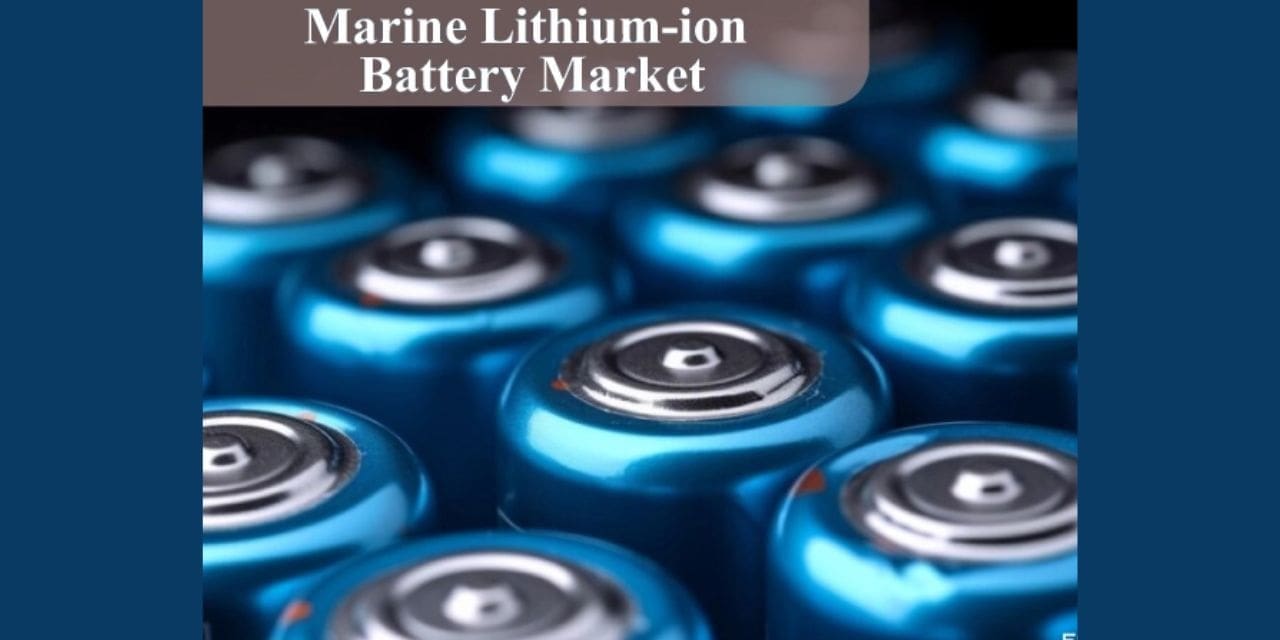In recent years, the world has witnessed an unprecedented surge in the demand for sustainable energy solutions across various industries. Among these, the marine sector stands out as a key frontier where innovation and sustainability intersect. As the global push for decarbonization intensifies, the marine lithium-ion battery market has emerged as a transformative force, revolutionizing how vessels operate while reducing their environmental footprint.
The marine industry has long grappled with the challenges of emissions, pollution, and reliance on fossil fuels. Traditional marine propulsion systems, predominantly powered by diesel engines, not only contribute significantly to air and water pollution but also pose operational and logistical constraints. In this context, the advent of lithium-ion battery technology has ushered in a new era of cleaner, more efficient, and sustainable marine transportation.
Marine Lithium-ion Batteries are advanced energy storage solutions designed for marine applications, including propulsion systems, auxiliary power, and onboard electronics. These batteries offer high energy density, rapid charging capabilities, and longer operational lifespans compared to traditional lead-acid batteries, making them ideal for various marine vessels. According to Persistence Market Research, the global marine Lithium-ion battery market is forecast to expand at a CAGR of 17.1% and thereby increase from a value of US$283.7 Million in 2023, to US$856.6 Million by the end of 2030. Factors such as the increasing adoption of electric and hybrid propulsion systems in ships, the need for energy-efficient solutions, and government initiatives promoting clean transportation drive market expansion.
Rising Demand for Sustainable Solutions
The escalating concerns over climate change and environmental degradation have spurred governments, regulatory bodies, and industry stakeholders to explore and adopt sustainable alternatives across all sectors, including maritime transportation. With stringent emission regulations and sustainability targets in place, the marine industry is under increasing pressure to embrace cleaner technologies that minimize its carbon footprint.
Lithium-ion batteries have emerged as a preferred choice for marine applications due to their superior energy density, efficiency, and environmental friendliness. Unlike traditional fuel-powered engines, lithium-ion batteries produce zero emissions during operation, making them an ideal solution for reducing pollutants in marine environments and coastal areas.
Key Drivers of Market Growth
Several factors are driving the rapid growth of the marine lithium-ion battery market:
Environmental Regulations: Stringent regulations imposed by international maritime organizations and governments worldwide to curb emissions and mitigate climate change have compelled shipowners and operators to invest in cleaner propulsion systems, including lithium-ion batteries.
Cost Efficiency: While the initial investment in lithium-ion battery technology may be higher compared to conventional fuel systems, the long-term cost savings, reduced maintenance requirements, and operational efficiencies offered by these batteries make them economically viable in the marine industry.
Technological Advancements: Ongoing advancements in battery technology, including improvements in energy density, charging efficiency, and safety features, have enhanced the performance and reliability of marine lithium-ion batteries, further driving their adoption across various vessel types and applications.
Industry Collaboration and Innovation: Collaborations between technology providers, shipbuilders, research institutions, and government agencies have fostered innovation and accelerated the development of advanced lithium-ion battery solutions tailored to meet the unique requirements of marine applications.
Market Outlook and Future Trends
The marine lithium-ion battery market is poised for significant growth in the coming years as the maritime industry undergoes a fundamental transition towards cleaner and more sustainable propulsion systems. With the increasing emphasis on decarbonization and the electrification of marine vessels, lithium-ion batteries are expected to play a pivotal role in shaping the future of maritime transportation.
Key trends that are likely to shape the trajectory of the marine lithium-ion battery market include:
Expansion of Electric and Hybrid Vessels: The growing demand for electric and hybrid vessels across various segments, including ferries, passenger ships, yachts, and offshore support vessels, is driving the adoption of lithium-ion battery technology as a primary or supplementary power source.
Integration of Renewable Energy Sources: The integration of renewable energy sources such as solar and wind power with lithium-ion battery systems offers the potential to further enhance the sustainability and efficiency of marine propulsion systems, reducing reliance on fossil fuels and minimizing environmental impact.
Advancements in Energy Storage Systems: Continued research and development efforts aimed at improving the energy density, safety, and performance of lithium-ion batteries are expected to result in the introduction of next-generation battery technologies optimized for marine applications.
Emergence of Smart Battery Management Systems: The integration of advanced battery management systems equipped with predictive analytics, remote monitoring, and diagnostic capabilities will enable ship operators to optimize battery performance, extend service life, and ensure safe and reliable operation.
The marine lithium-ion battery market represents a compelling opportunity for stakeholders across the maritime industry to embrace sustainable energy solutions and drive meaningful change towards a cleaner and greener future. As technological advancements continue to reshape the landscape of marine propulsion systems, lithium-ion batteries stand out as a key enabler of innovation, efficiency, and environmental stewardship in the maritime sector. By leveraging the potential of lithium-ion battery technology, the marine industry can chart a course towards a more sustainable and resilient future on the world’s oceans.

